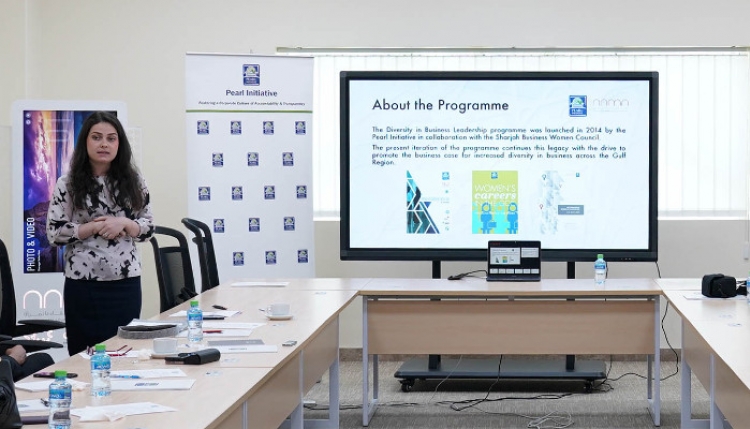Doha - MENA Herald: Her Excellency Sheikha Hanadi bint Nasser Al Thani, Vice Chairman of Nasser Bin Khaled Al Thani & Sons (NBK), Founder and Chairperson of Amwal and a member of the Board of Governors of Pearl Initiative, has urged regional companies to embrace gender diversity at senior leadership and board levels.
Her Excellency Sheikha Hanadi’s comments were made at the ‘Diversity in Leadership: Business Roundtable’ hosted by Pearl Initiative, the leading Gulf business-led not-for-profit organisation promoting a corporate culture of accountability and transparency as a key driver of competitiveness across the region.
Organised in partnership with NBK, the roundtable convened more than 60 executives from public and private sector companies, family firms, state-owned entities, academia and government institutions in Qatar. The platform offered an opportunity for participants to share experiences and viable strategies for attracting, retaining and promoting women in senior corporate positions in Qatar and the wider region. As part of the agenda, the session highlighted key findings from Pearl Initiative’s 2015 report, ‘Women’s Careers in the GCC: The CEO Agenda’.
Headlining the roundtable, Her Excellency Sheikha Hanadi commended the region’s progress in achieving diversity in the workplace but noted there was scope for improvement to ensure diversity and equality at the senior management and board levels.
She said: “There is a strong business case for greater levels of gender diversity in the upper ranks of organisations that is strongly linked with enhanced strategic decision making, better governance, and a closer understanding of target markets. When you have more talented women in senior roles, you have better governance and ultimately a stronger economy. We are seeing progress and a shift in attitudes in the GCC region, but it is crucial that we continue to actively improve measures such as work-life balance and mentorship for women in the workplace to ensure they are encouraged to continue working and seize opportunities to become leaders.”
Following the keynote speech, a panel discussion drew out the perspectives of executives from the Pearl Initiative, NBK, 30% Club GCC Chapter, ExxonMobil Qatar, Qatar Business Incubation Center and PwC Qatar on how organisations can ensure an equitable distribution of leadership opportunities.
Topics highlighted at the panel discussion included: why women leave the workforce before reaching the most senior levels, how attitudes towards women in leadership are changing, and what challenges lie ahead. Panelists also examined the business case for region-specific active intervention and practical programmes to drive gender balance change in leadership teams. In addition, the session spotlighted the importance of role models in encouraging young professional women to reach senior positions in organisations.
During the roundtable portion of the event, the participants exchanged views on the state of gender equality in the workplace by anonymously voting on a series of statements. The survey found that 42% of the attendees believe that organizations in Qatar are increasingly promoting the inclusion and participation of women in the workforce. The majority of attendees were also optimistic about the future of diversity in leadership, with 72% believing that in five years time, Qatar will see a significant increase in the number of women in executive and board roles.
Speaking on the success of the event, Imelda Dunlop, Executive Director of Pearl Initiative, said: “We know that women in the GCC region are ambitious achievers with the drive and skill to succeed at the highest levels. It was indeed encouraging to meet and listen to so many of them at today’s session as they keenly discussed and debated the feasibility of developing implementable solutions to achieve greater gender balance in the workplace. We have all come away with some really exciting ideas that I am confident will lay the foundation for greater gender diversity within organizations.”




